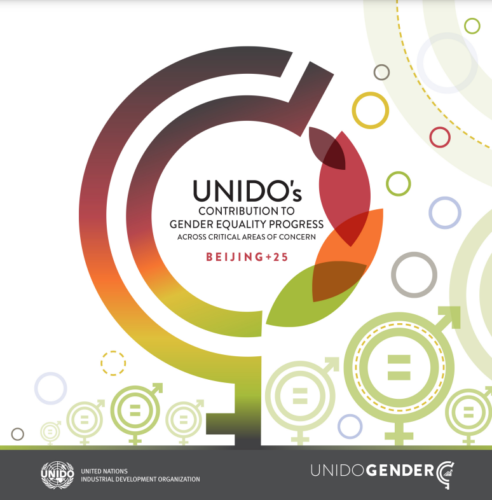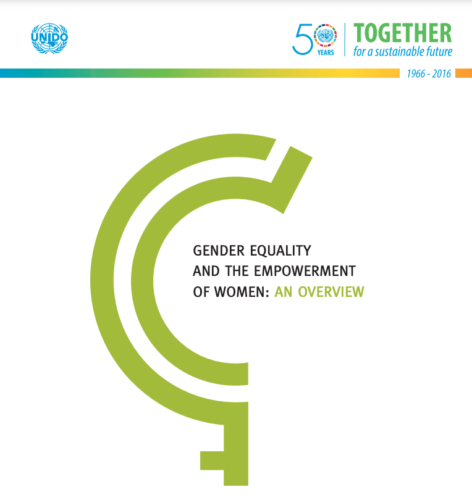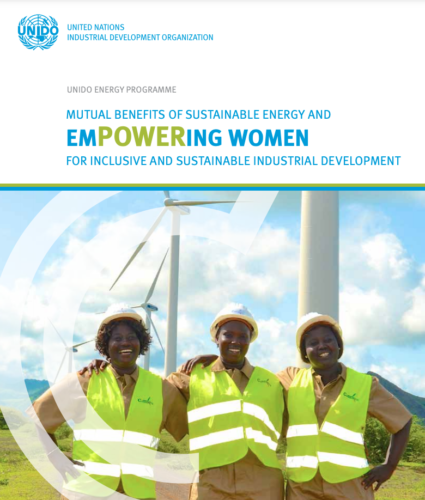Gender equality and the empowerment of women
22.03.2021
Gender equality and the empowerment of women
It is UNIDO’s vision that women and men equally lead, participate in, and benefit from inclusive and sustainable industrial development. UNIDO fully recognizes that gender equality and the empowerment of women lie at the heart of its mandate. The Organization is committed to addressing gender inequalities in industry and to harnessing women’s full potential as leaders and economic agents of change, thereby transforming economies and generating inclusive growth.
Enhancing the role of women as drivers of poverty reduction, promoting female investors and entrepreneurs, and recognizing the link between gender equality and safeguarding the environment all promote inclusive and sustainable industrialization, and directly contribute to the 2030 Agenda for Sustainable Development and its Sustainable Development Goals.
Targeting gender equality and women’s economic empowerment is not only important from the perspective of realizing women’s rights but is also smart economics. Economies grow faster when gender equality is advanced; less people remain in poverty, and overall well-being increases. Global gross domestic product could increase by more than 25 per cent by 2025 if women played the same role in labor markets as men.
UNIDO is committed to implementing programmes that challenge the discrimination faced by women and girls, whatever their background and identity. Such programmes facilitate the transformation of social norms and power relations, prioritizing increased women’s participation and leadership in formal economic sectors and in environmental conservation and climate action. UNIDO collaborates with partners across the UN system, the private sector and at the country level to engage men, as well as women, at all levels to help shift the power relations, social norms and gender stereotypes that limit both women and men’s prosperity and economic contributions. Through these partnerships, UNIDO provides technical cooperation activities within its four thematic areas. By increasing the access of women to productive resources, creating enabling conditions for women’s entrepreneurship and job creation, education and vocational training and women’s leadership, promoting women’s agency in climate change adaptation and mitigation, and building the knowledge and capacity for gender-responsive industrial development, UNIDO is helping to create a world where both men and women can thrive.
UNIDO mainstreams gender in all programmes, projects and organizational practices. UNIDO’s new Policy on Gender Equality and the Empowerment of Women, issued in September 2019, sets out the Organization’s gender equality commitments as well as its gender architecture and accountability. To further guide the Organization’s advancement in this area of work over the next four years, UNIDO has developed the Strategy for Gender Equality and the Empowerment of Women, 2020-2023. This Strategy provides a framework for UNIDO’s programmatic work and organizational practices to accelerate progress in delivering on gender equality commitments. The Strategy fully recognizes that only by combining the promotion of gender parity and an enabling, inclusive working environment with gender-responsive strategic planning and programmatic activities can UNIDO improve its delivery of global results on gender equality.
Related Documents
Impact story
“Relying solely on her drive and dedication, she managed to turn a challenge into an opportunity, redefining an otherwise closed workplace, and inspiring others to do the same.”

Mami Joah is an inspiration and a role model for her community. Mother of five and advocator for women empowerment, for many years she was the sole woman working in the construction business. Mami was one of the first women to join UNIDO’s carpentry training, as she wanted to learn technical woodworking skills, as well as the entrepreneurial know-how on setting up and managing a business. Funded by the Government of Japan, the project provides technical and vocational training to those living in vulnerable communities.
Currently, she works in a carpentry shop in Unification Town. She endeavors to steadily open her own carpentry workshop, and to employ other female carpenters. In the meantime, Mami created a women’s support group which empowers and encourages women to partake in the UNIDO carpentry training. She knows how vital community support is to the young women who are starting off in a male-dominated sector.
Mami found her passion, and by turning it into her livelihood, she can now support others to do the same. She knows well her community’s struggles, as well as the daily hardships it encounters, and she is determined to make a difference. Mami’s goal is to build a more stable and positive future for herself, her children, and the whole community. She knows that this can only be achieved by supporting others, in any way she can.
Topics
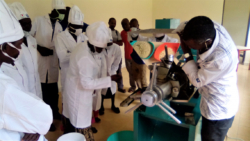 Agricultural value chain development creates income-generating opportunities in South Sudan
Agricultural value chain development creates income-generating opportunities in South Sudan
With funding from the Government of Japan, UNIDO has implemented a project for South Sudan to create employment and income opportunities for internally displaced people and their host communities. Read full story from here.
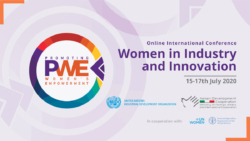 [UNIDO HQ] Online : International Conference “Women in Industry and Innovation”: July 15-17 (CET)
[UNIDO HQ] Online : International Conference “Women in Industry and Innovation”: July 15-17 (CET)
UNIDO HQ, together with UN Women, FAO and the Government of Italy have organized a virtual conference to help build women’s resilience to global challenges and emerging crises. Read full story from here.
 Industries post-COVID-19: A gender-responsive approach to global economic recovery
Industries post-COVID-19: A gender-responsive approach to global economic recovery
Women’s specific needs and potential as leaders and agents of change must be considered for COVID-19 mitigation and recovery measures. Read full story from here.
Related Links
- Compact Rice Husking & Milling Unit with Pre-cleaner, Destoner and Moisture Meter: S…
- Event Report: “Learning from Entrepreneurs in Africa: Challenges and Prospects for Gende…
- Women’s Voices: Japanese technologies mitigating the effects of COVID-19 in Africa and As…
- Event report: “Green Business and Climate Investment: Business Solutions and Impact Inves…
- Event Report: Sustainable Technology Exhibition 2021


